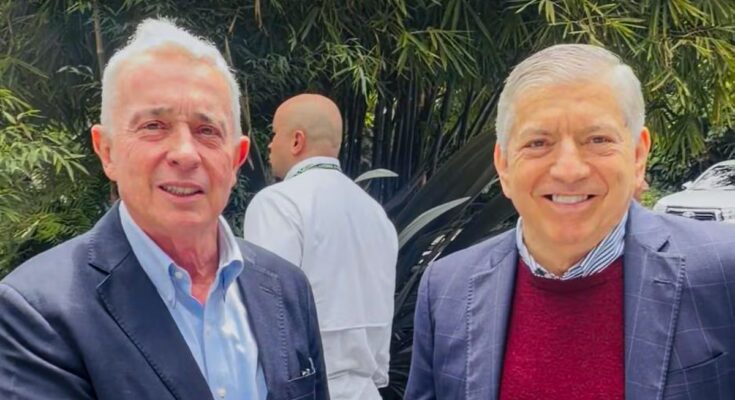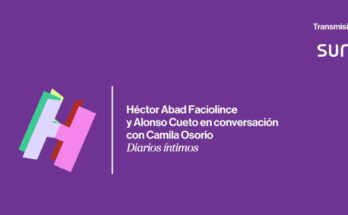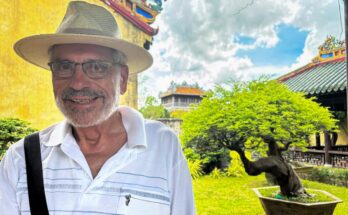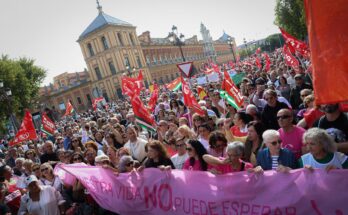The only condition for participating in the coalition that the Colombian centre-right, the traditional right and the far right are trying to organize is not to be a Petrist, not to have been one in the past and not to have any relationship with the current government. The idea is to hold a mega-presidential consultation in March 2026, among candidates from this broad ideological spectrum, to elect just one who will participate in the first presidential round in May. The chosen one will have to deal with the candidate who will come from the so-called broad front of the left and center-left, currently led by Senator Iván Cepeda, after having won the internal consultation of the Historical Pact with more than one and a half million votes, and with the candidates who do not fall on either of these two sides.
These two agreements – all except the Petro one and the mega-consultation mechanism – were agreed upon in several meetings held by representatives of the traditional parties in recent days. Last Wednesday, the president of the conservative party, Senator Nadia Blel, met in Bogota; the leaders of the Liberal Party, former president Cesar Gaviria; Democratic Center, former deputy Gabriel Vallejo; and Radical Change, Germán Córdoba. Former president Álvaro Uribe, top leader of the Colombian right and president of the Democratic Center, and former vice-president and former deputy minister Germán Vargas Lleras, leader of Cambio Radical, participated in the video conference. Also present were representatives of the Colombia Justa y Libres, Christian and Verde Oxígeno parties, led by former presidential candidate Ingrid Betancourt. Several media outlets claimed that members of the La U party were present at the meeting, but its co-directors Clara Luz Roldán and Alexander Vega denied the information, as did the natural leader and governor of Valle del Cauca, Dilian Francisca Toro. The six participating parties theoretically represent 53 of the 105 senators and 94 of the 188 representatives, although internal discipline is poor among conservatives and liberals.
In the vast meeting it was agreed that the first filter to filter the dozens of candidates in this sector will be December 8, the deadline for registering congressional candidacies and for parties to announce their participation in a consultation in March. On that day, many presidential candidates will prefer to run for the Senate. Furthermore, the Democratic Center hopes to have chosen its candidate, in principle through a poll, among Miguel Uribe Londoño, Paloma Valencia, María Fernanda Cabal, Paola Holguín and Andrés Guerra, who in recent days have complained about the lack of transparency of this mechanism. Furthermore, it is likely that by then the candidate of the alliance called The Force of the Regions, composed of the former governors Aníbal Gaviria, of Antioquia, will also be known; Juan Guillermo Zuluaga, from Meta; and Héctor Olimpo Espinosa, of Sucre; and the former mayor of Bucaramanga, Juan Carlos Cárdenas.
In the meeting at Blel’s house it was also decided to open the doors of the mega-consultation to candidates who do not have the support of a party and to collect signatures to obtain the direct support of citizens. This would allow the entry of not only the winner of former local presidents, but also far-right figures who have been traveling around the country for several months seeking citizens’ support. In this sense, Abelardo de la Espriella, Alex Saab’s former lawyer who said he wants to “eradicate” the left and who in any case has the support of the conservative National Salvation party, could participate; and the former editor of Semana magazine, Victoria Dávila, one of the Petro government’s fiercest opponents. The two said they were willing to pursue unity, but did not confirm their participation.
In the megaconsultation there could also be room for representatives of the so-called technocratic right, such as the former Minister of Finance and Mines, Mauricio Cárdenas, and the former director of the Danish, Juan Daniel Oviedo. It would also be possible for the director of New Liberalism and presidential candidate, Juan Manuel Galán, who did not participate in the meeting, but does not rule out taking part: “We do not close the door to dialogue, to dialogue on what is the purpose of the country that should unite us, the defense of the Constitution of ’91, the defense of democratic institutions and the purpose of that alliance, which is for Colombia to move forward”, said the former senator in dialogue with the media.
The broad ideological spectrum to which the invitation for the possible vote in March is addressed was defined earlier, when former presidents Uribe Vélez and Gaviria Trujillo met two weeks ago. Behind closed doors, in the Rionegro estate where the first of them lives, the two former leaders came to a conclusion: the coalition can include candidates located from the far right of Abelardo de la Espriella to the center of Sergio Fajardo. The former mayor of Medellín and former governor of Antioquia, however, insisted that he will go on his own until the end and said that the only thing he has in common with de la Espriella is his critical stance towards President Petro.
And precisely this, anti-Petrism, seems to be the only glue of an alliance between parties and figures who have been bitter rivals in the past. The two former presidents, allies in the 1990s and rivals until a few years ago, explained some of the coincidences they had arrived at after their meeting. “As they fail socially, they discredit what has succeeded socially,” Uribe said of the Petro government, in a video in which he appears with Gaviria at his side. “Provide a lot of education in a small state. Instead of many embassies, strengthen healthcare”, he insisted. In both meetings, criticism of President Petro multiplied, but clear proposals are still needed on the future of the country in various areas that will allow the possible coalition to be consolidated.



